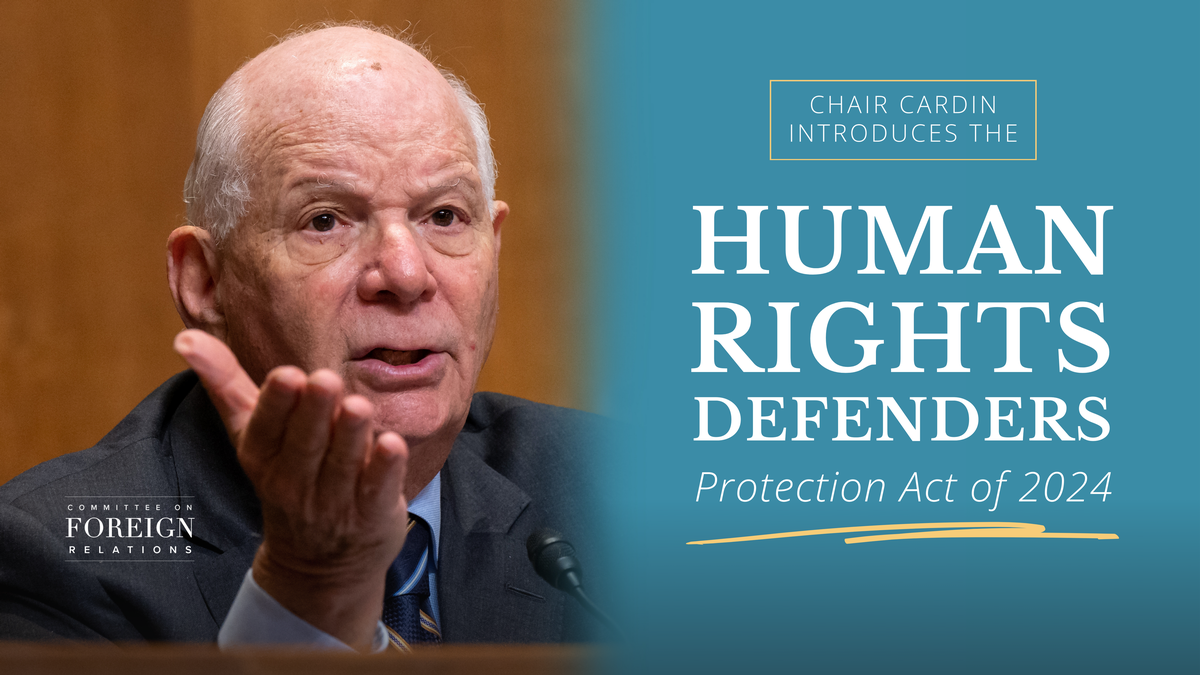(US Senate Committee on Foreign Relations press release) WASHINGTON — Today, U.S. Senator Ben Cardin (D-Md.), Chair of the Senate Foreign Relations Committee, announced that he and Senator Roger Wicker (R-Miss.), Ranking Member of the Senate Armed Services Committee, have introduced the International Freedom Protection Act, legislation to update and strengthen the U.S. approach to countering authoritarianism and promoting democracy globally. This landmark bill will also provide a basis to impose sanctions on foreign persons who undermine democratic processes and institutions under the Global Magnitsky Sanctions program, enhance efforts at the State Department and other federal agencies to support political prisoners, and articulate U.S. policy on confronting digital authoritarianism and countering mis- and disinformation.
“Over the past two decades, the world has witnessed an alarming decline in freedom, while authoritarianism is on the rise,” said Chair Cardin. “Autocrats in nations like the People’s Republic of China, Russia, Iran, and beyond have steadily eroded democratic principles, often working together in their efforts to suppress freedom worldwide. The United States must update its approach to effectively address the complex and evolving threats posed by such actors. The International Freedom Protection Act will be essential in modernizing our strategies, policies, and tools in combatting authoritarianism to confront these challenges.”
Among other provisions, the International Freedom Protection Act will:
• Combat transnational repression abroad by defining the term, requiring a U.S. strategy on the matter, and requiring the consideration of transnational repression in human rights-related sanctions
• Establish in law a mandatory visa ineligibility for foreign government officials involved in gross violations of human rights and significant acts of public corruption and add a discretionary visa restriction for those who undermine democratic governance
• Address the rise of coups by codifying a restriction on the provision of assistance to governments that come to power through military coups
• Combat corruption and kleptocracy, including by expanding the Rewards for Justice program to allow the State Department to provide rewards for information related to tracking down ill-gotten gains from corruption
• Establish a program at the State Department for democracy research and development to drive innovation regarding the challenges to democracy and best practices






